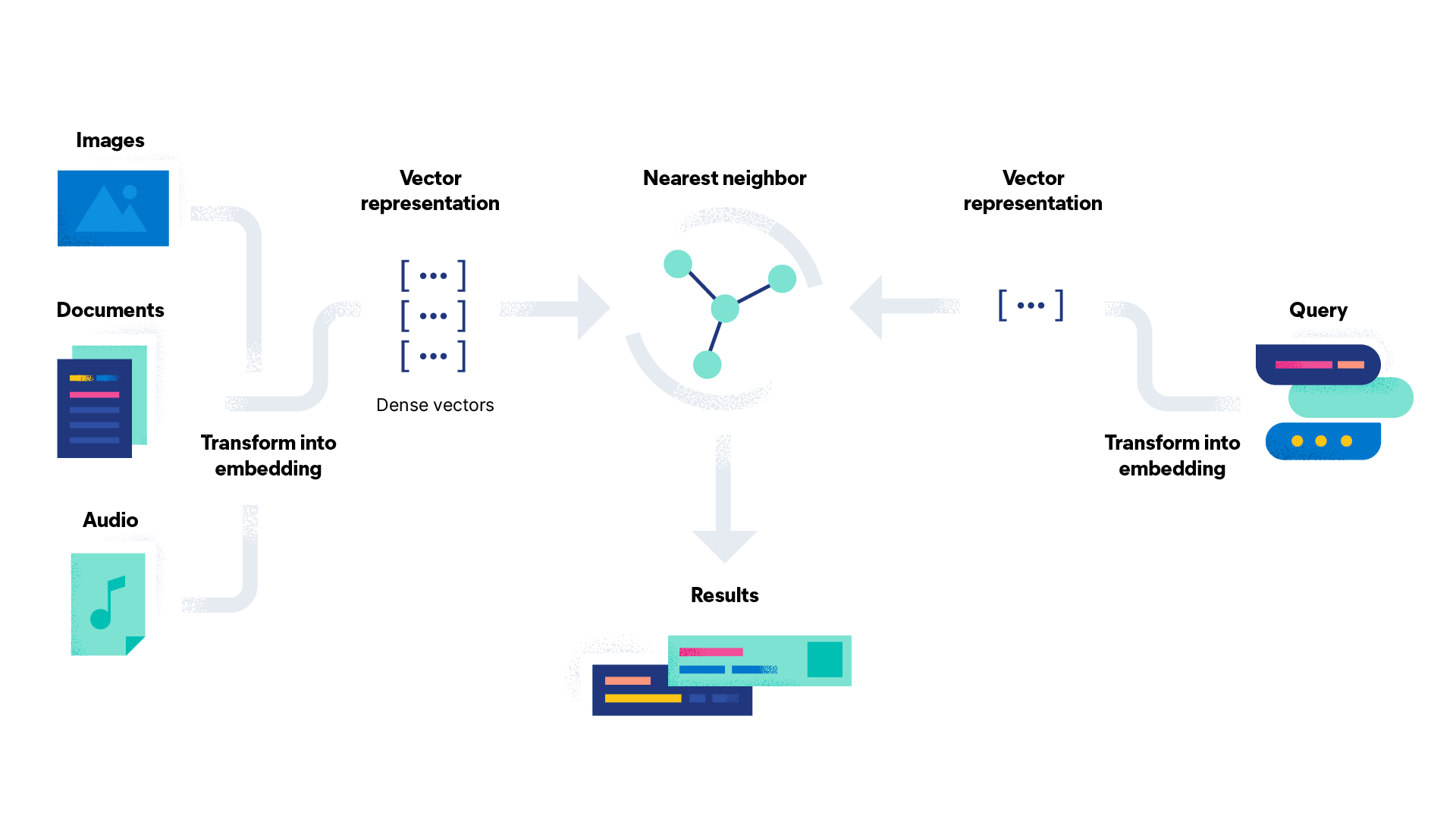What is Semantic Search & Why is it Important?

The goal of semantic search is to comprehend the user's purpose and the contextual meaning underlying their searches. It represents a significant paradigm shift in information retrieval. Semantic search system in contrast to conventional keyword-based searches, examines the relationships between words and phrases as well as their semantic properties to produce more precise and contextually relevant results. This sophisticated method not only improves user experience by yielding more accurate responses, but it is also essential in some industries, including e-commerce, healthcare, and education.
Comprehending the fundamentals of semantic search and its importance is essential to successfully navigate the ever-expanding world of online information.
What Is Semantic Search?

To understand the essence of general semantics, consider the term "semantic" itself. In linguistic terms, semantics refers to the study of meaning. Applied to search technology, a semantic search engine delves into the meanings of the search terms users input. Essentially, semantic search establishes connections between words and phrases, interpreting digital content in a manner akin to human understanding. This approach enables the engine to provide users with more personalized and precise search results.
Semantic Search Examples
Here are semantic search examples in action:
Understanding synonyms and related terms: Instead of just looking for the exact phrase "healthy recipes," semantic search can recognize synonyms like "nutritious meals" or broaden the scope to include specific dietary needs like "low-carb recipes."
Grasping the user's intent: A search for "running shoes" might be about finding information on different types of running shoes or where to buy them. Semantic search can determine the user's intent (informational vs. commercial) and tailor the results accordingly.
Considering context: Searching for the "best time to visit Paris" during winter would likely return results about winter activities in Paris, rather than general travel guides. Semantic search considers the context of the season to provide the most relevant information.
Understanding ambiguity: "Diamond ring" refers to an engagement ring or a piece of jewelry. Semantic search can refine the results by using additional details on the webpage or user search history.
What Are Semantic Search Principles?
Semantic search AI operates on two fundamental principles: search intent and semantic meaning. To accurately interpret natural language, search engines must analyze content through the lens of both these factors.
Search intent
The first principle, refers to the underlying motivation behind a search query. While some queries are straightforward, such as "buy soap," users often phrase their searches in more varied ways, like "need soap now," "cheap soap," or "nice smelling soap bar." From these diverse phrases, the search engine must discern whether the user intends to make a purchase, and if so, what specific product they seek, or if they simply seek information about soap.
A semantic search engine excels at deciphering the nuanced meaning behind words, enabling it to better understand user intent and deliver more relevant search results compared to traditional search engines.
Semantic meaning
Stems from the field of linguistics and focuses on the relationships between words rather than their isolated meanings. While traditional search engines rely on keyword analysis, semantic search technology takes a holistic approach, considering the contextual meaning and interconnections between words. This approach mirrors human language comprehension more closely. By understanding the semantic nuances of queries, semantic search engines aim to eliminate irrelevant search results, thereby enhancing the overall user experience.
How Does Semantic Search Work?

Semantic search works by understanding the context and meaning behind user queries to deliver more relevant search results. Unlike traditional keyword-based search engines, which match query keywords with indexed web pages, semantic search engines analyze the semantics of words, phrases, and their relationships to infer the user's intent. Here's how it typically operates:
Understanding User Intent: Semantic search engines focus on comprehending the intent behind a user's query rather than just the keywords used. This involves analyzing the context of the query, the user's search history, location, device type, and other relevant factors to determine what the user is truly seeking.
Natural Language Processing (NLP): Semantic search engines leverage NLP techniques to process and understand human language. This includes parsing sentences, identifying entities and relationships, and extracting meaning from the text.
Entity Recognition: Semantic search engines recognize entities such as people, places, organizations, and concepts mentioned in the query and content. By understanding these entities and their relationships, the search engine can provide more accurate and contextually relevant results.
Contextual Understanding: Semantic search considers the context of the query and the content being searched. It analyzes the semantics of words and phrases to understand their intended meaning within the given context.
Query Expansion and Refinement: Semantic search engines may expand or refine the user's query based on synonyms, related terms, or broader concepts to ensure a comprehensive search experience. This helps in capturing the user's intent more accurately and retrieving relevant results even if the exact keywords are not present.
Personalization: Semantic search engines may personalize search results based on the user's preferences, search history, location, and other contextual information. This enhances the relevance of the results by tailoring them to the individual user's needs and interests.
Ranking Algorithm: Semantic search engines use advanced ranking algorithms that consider factors beyond keyword relevance, such as the authority of the content, user engagement metrics, and the trustworthiness of the source. This ensures that the most valuable and credible results are presented to the user.
Why is Semantic Search Important?
Semantic search is important for several reasons:
Improved Relevance: Semantic search engines understand the context and meaning behind user queries, allowing them to deliver more relevant search results. By considering the semantics of words, phrases, and their relationships, semantic search engines can better match user intent with relevant content, leading to a more satisfying search experience.
Enhanced User Experience: With semantic search, users are more likely to find what they're looking for quickly and easily. By presenting more accurate and contextually relevant results, semantic search engines help users save time and effort, resulting in a more positive overall user experience.
Natural Language Understanding: Semantic search engines are better equipped to understand natural language queries, including synonyms, colloquial expressions, and ambiguous terms. This allows users to express their search queries more naturally, without needing to carefully choose specific keywords.
Personalization: Semantic search enables personalized search results tailored to individual user preferences, search history, location, and other contextual factors. By delivering results that are more aligned with each user's interests and needs, semantic search enhances the relevance and usefulness of search results.
Discovery of Related Concepts: Semantic search engines can uncover relationships between different concepts and entities, allowing users to discover related information they may not have considered. This can lead to serendipitous discoveries and deeper exploration of topics of interest.
Business Applications: Semantic search has numerous applications in business, including e-commerce, content recommendation, customer support, and data analysis. By understanding the semantic meaning of user queries and content, businesses can better serve their customers, improve search engine optimization (SEO), and gain insights into customer preferences and trends.
Semantic Search vs Vector Search
Semantic search and vector search are closely related but have subtle differences:

How does Manifest AI help with Semantic Search?

Manifest AI is a GPT-powered AI shopping assistant that enhances the shopping experience by incorporating semantic search capabilities into its framework. Here’s how it specifically aids in semantic search:
Understanding User Queries: Manifest AI uses advanced natural language processing (NLP) techniques to grasp the intent and context of user queries. Unlike basic keyword-based searches, it understands variations in language, synonyms, and related terms. This means when a customer types a query, Manifest AI comprehends not just the words but the meaning behind them.
Personalized Search Results: By understanding the semantics of a query, Manifest AI can provide more accurate and relevant search results. For example, if a customer searches for "comfortable evening wear," Manifest AI recognizes the intent (comfort and occasion-specific attire) rather than just matching keywords. This leads to search results that are more aligned with the customer's actual needs.
Enhanced Customer Interactions: Semantic search enables Manifest AI to interact with customers more effectively. It can answer questions, offer recommendations, and guide users through their shopping journey with a deeper understanding of their spoken or typed language.
Learning and Adapting: Over time, Manifest AI learns from interactions and improves its understanding of customer language and preferences. This continuous learning process helps refine the semantic search capabilities, ensuring that the AI becomes more effective at interpreting and responding to user queries
Conclusion
To sum up, semantic search is a big development in the field of information retrieval that will change the way people use search engines and find relevant content. Semantic search engines provide more accurate user intent understanding and tailored, contextually appropriate results by exploring word and phrase meanings and context. This has significant ramifications for businesses, content producers, and researchers alike in addition to improving the user experience by offering more accurate responses.
Semantic search enhances search engine optimization tactics, helps companies better serve their clients, and makes it easier to extract insightful information from massive data sets. Semantic search is important because it may help connect user queries with relevant content, which improves information retrieval.

.png)
